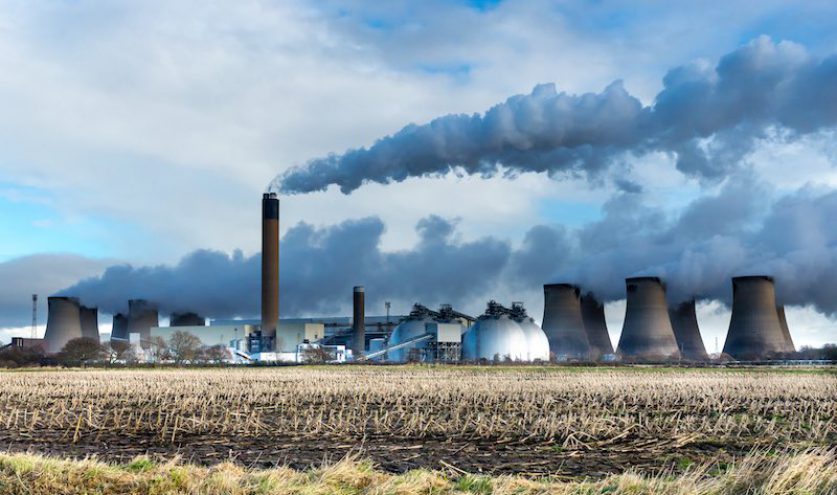
Power company Drax is pondering the future of the remaining coal units at its North Yorkshire plant.
The FTSE 250 company announced today that it will “assess options” for the two coal units at the Selby site, alongside discussions with National Grid, Ofgem and the government.
The Drax power station was once the largest polluter in western Europe. Four of the plant’s generating units have already been converted to burn wood pellets to generate electricity. The two remaining coal units have contracts running until the end of September 2022, under a government scheme that ensures sufficient generating capacity is on standby during periods of high demand, usually during the winter.
Following a string of closures of old power stations, Drax will be just one of three remaining coal-fired plants online by the end of this year. EDF’s Cottam shuttered last September, while SSE’s Fiddler Ferry and RWE’s Aberthaw B are both scheduled to close in March.
Last year, coal contributed just 1.9% of the UK’s power, as zero-carbon sources overtook fossil fuels for electricity generation for the first time ever. The government is aiming to phase out all coal-powered generation by 2025.
A spokesperson for Drax said that although Drax was weighing options, “no decision about the future operation of our coal units has been taken.”
However, Will Gardiner, chief executive of Drax, had previously told the Financial Times that the likelihood of the plant’s coal units running beyond 2023 is “extremely low.”
Drax has previously outlined plans to become carbon-negative by 2030, by burning wood in its plants and capturing and storing the emissions. However, Drax’s plans to develop new gas turbine generating units on the Selby site have thrown its commitment to decarbonisation into doubt.
Drax’s proposed 3.6GW plant would be the largest gas power station in Europe and could account for up to 75% of the UK’s energy sector emissions when operational, environmental lawyers ClientEarth have alleged.
The planning inspectorate recommended the government refuse permission for the development of the plant because it “would undermine the government’s commitment, as set out in the Climate Change Act 2008, to cut greenhouse emissions.”
However, Andrea Leadsom, secretary of state for business, energy and industrial strategy, rejected the advice and granted the plant approval in October. Drax has said its negative carbon ambition could still be achieved alongside the development of new gas generating capacity.
Now ClientEarth has brought a legal challenge against the government for the plant’s approval, after being given the permission to sue ministers by the high court.
Leadsom’s “decision is at odds with the government’s own climate change plans. As the planning inspectorate found, if this plant goes ahead the public risks a carbon budget blowout, or a huge stranded asset that would require propping up by the taxpayer, or a combination of the two,” Sam Hunter Jones, a lawyer at ClientEarth, said.
As the use of coal has fallen sharply, the UK has become increasingly dependent on natural gas, another fossil fuel. Gas’ share of electricity generation has grown from just 0.1% in 1990 to 38% last year.




